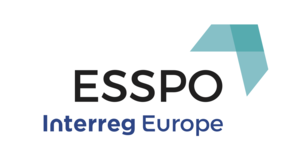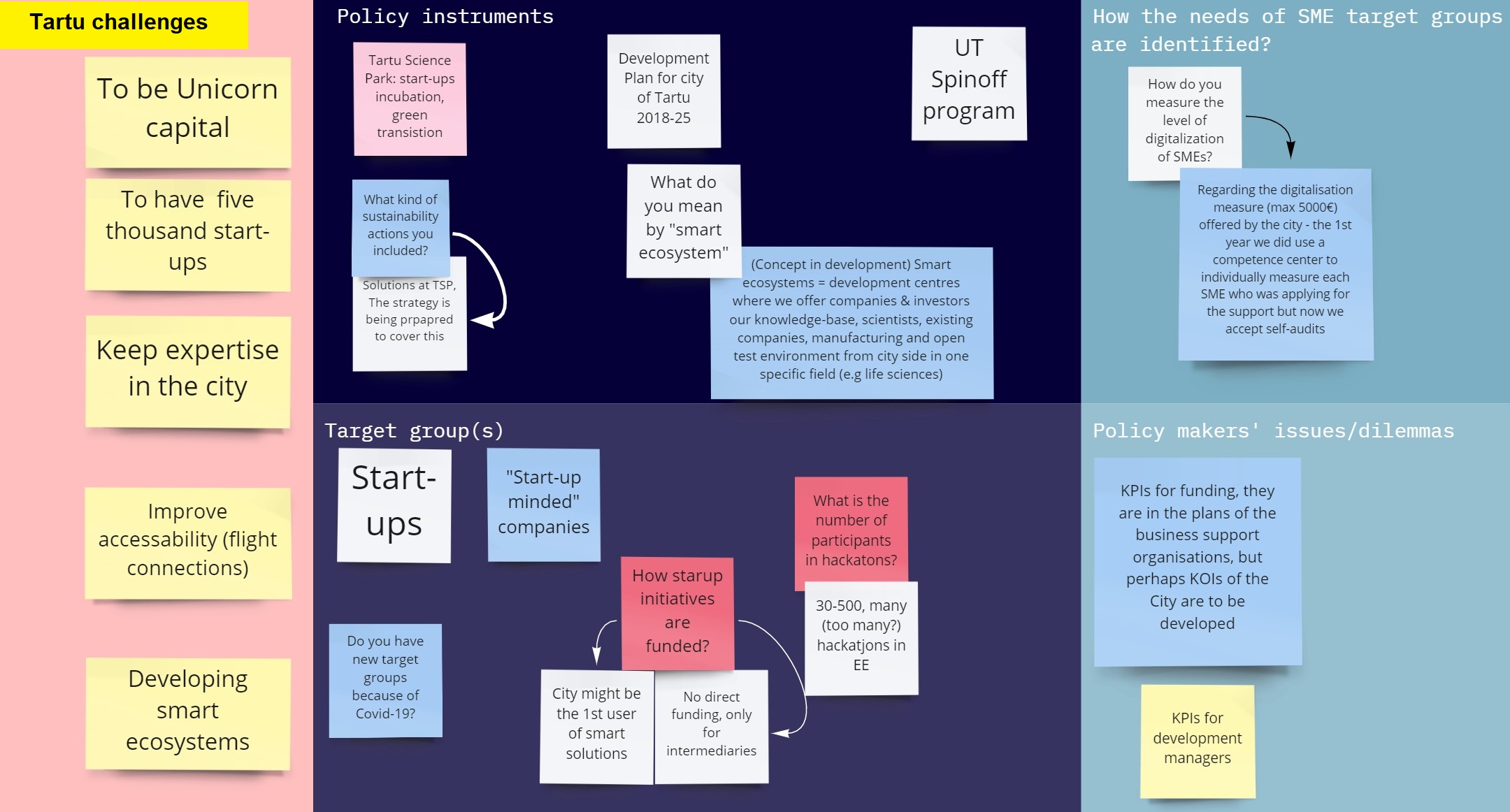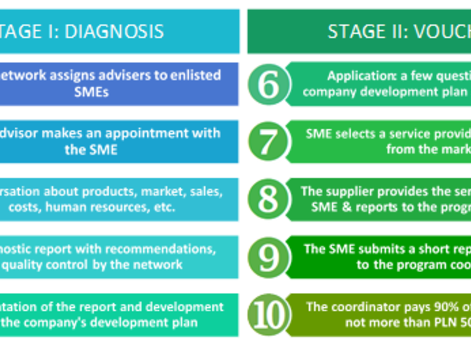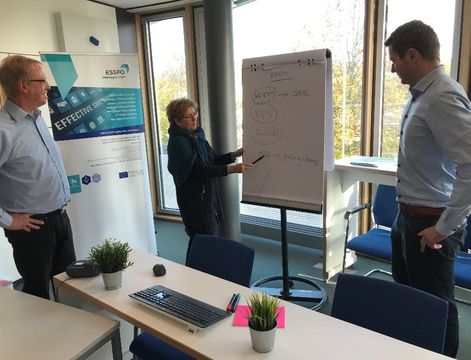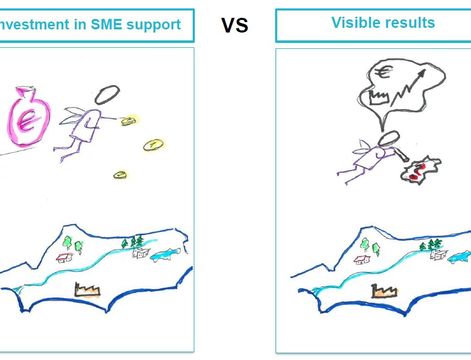We are happy to share with you the outcomes of the pilot action carried out in Wiekopolska within ESSPO project.
Despite perturbances related to Covid-19 pandemics ESSPO Pilot Action has been successfully concluded. The three partner institutions (Poznan Science and Technology Park, Chamber of Commerce in Turek and Association of Entrepreneurship Support of Gostyń) created a “laboratory scale” network operating in 3 locations in Wielkopolska and delivered standardised support to 30 companies in the region.
The ambitious objective was to test, if we can:
• Transform potentially innovative SMEs into innovative enterprises.
• Overcome the barriers of awareness, attitude and competence among SMEs, and then assist them in the first steps of developing and implementing an innovative development plan for the company.
While designing the support instrument for the first time innovators we followed the good practices and experience of our partners of Regional Developpers Network of Centre Val de Loire (FR) and Knowledge & Technology Transfer of Wesebergland+ (DE).
We assumed that
• the “first time innovators” require high-quality advise BEFORE the provisions financial support to the company;
• network approach will ensure the appropriate scale and uniformity of support for companies throughout the Wielkopolska region.
How we did it:
• Proactive approach – 30 company visits were initiated by intermediary ;
• 30 Individual Innovation Roadmaps were delivered to SMEs and follow-up activities are on-going
The pilot exercise has provided evidence on the feasibility and usefulness of the instrument designed within ESSPO which is focused on the group of SMEs not yet benefitting from the innovation support schemes despite their potential.
Regardless of the stage of development of the companies diagnosed within the pilot exercise the most common issues were related to proper definition, and sometimes even awareness, of the need for the necessary organizational and management changes, e.g. formulating vision of the company development, improving employee - company owner relations, introducing motivation systems, stress management, generating and selecting innovative ideas, lean management, relations with customers and suppliers. Second most frequent group of issues faced by diagnosed companies was related to marketing, including: business model, marketing strategy, new markets, internationalization, distribution channels, customer segments etc. Once Individual Innovation Roadmaps of the necessary changes were developed, companies needed regular external support in the process of implementing these changes based on long-term relation between the company and the supporting agent. This insight inspired further improvement of the ESSPO instrument concept by the introduction of coaching service following the innovation diagnostics in order to assist the change planned in each SME beneficiary’s Individual Innovation Roadmap.
On the other hand the pilot exercise confirmed that SME support centers cooperating in a network formula enable reaching a wider group of entrepreneurs with a uniform offer of services of all members. Local business support organisations operating in the region enjoy the trust of companies and have proven channels to reach new enterprises increasing the availability of support services outside the capital of the region. Partners also confirmed that the diagnostic service provided in a standardized form by network members is a very good starting point for the implementation of a number of further activities and support services aimed at innovative development of individual enterprises.
At the same time it turned out that the most widely available support in the form of returnable or non-returnable financial instruments is not what the pilot SMEs need most. It is because the support instruments for projects R&D&I available for companies are based on the assumption that SMEs are ready to apply for investment. Yet there are no activities related to increasing the innovative readiness (sometimes referred to as the absorption capacity) of SMEs.
Based on the lessons learnt from pilot action and the elements of support instrument elaborated in living-lab process already during ESSPO phase 1 the ROP Managing Authority decided to include a dedicated action for the next financial perspective of the Programme in Wielkopolska.
